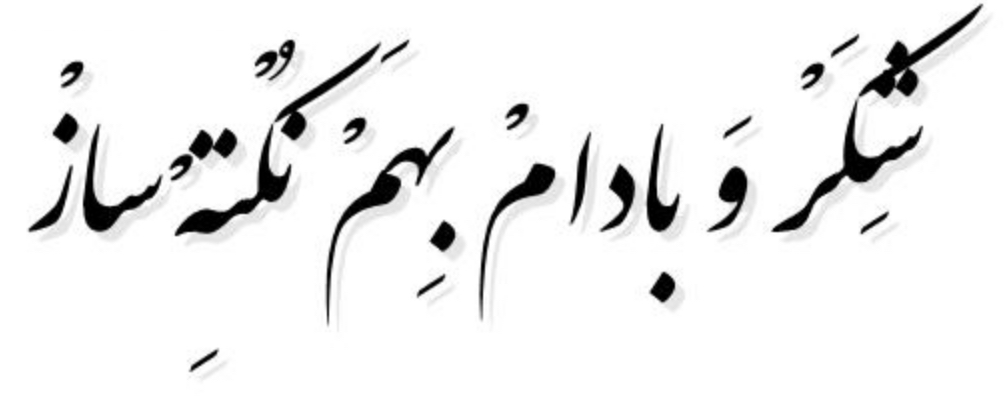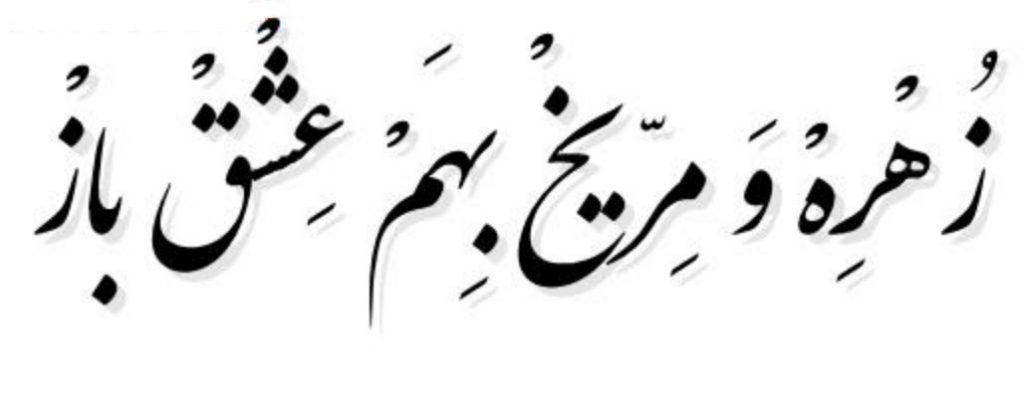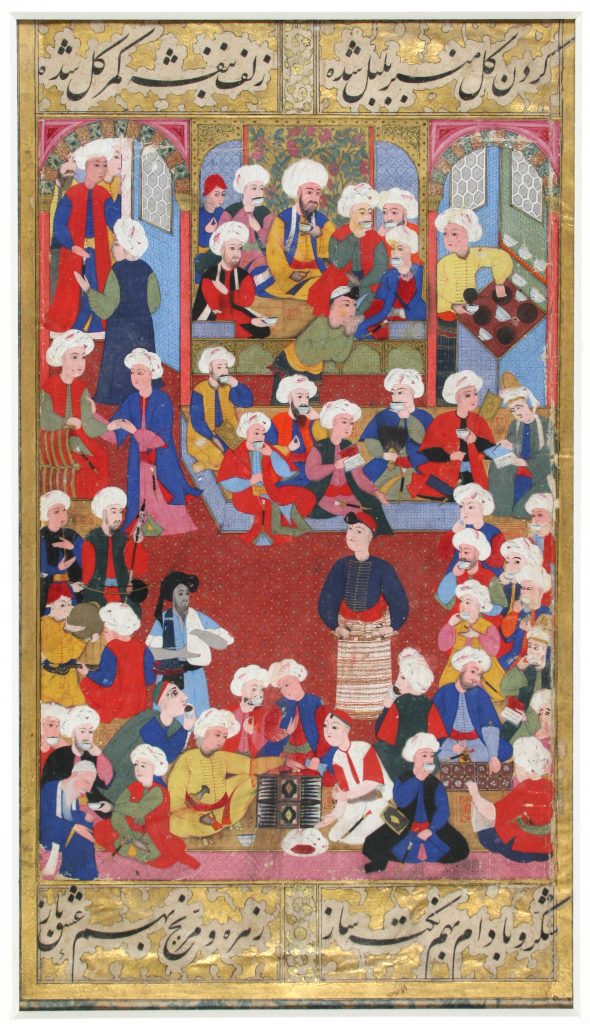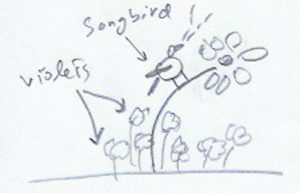Neck of the flower has become the songbird’s pulpit
Locks of the violet up to the middle of the flower
Sugar and almond in detailed discussions with each other
Venus and Mars in love with each other
Lexicon
گَرْدَنِ: Neck referring to the place where the throat sounds the speech
گُلْ: Flower, result of knowledge that appears within the heart. (Istilahat(Terminologies) Araqi, found in the back of his Divan)
خاکِ ذَليلانْ شُدِهْ گُلْشَنْ بِهْ تو
The dust of the destitute transformed into meadows because of you (Muhammad)
Words that came out of the Prophet’s neck and mouth turned the abject dark un-living and worthless dust of our existence into meadows.
Like unto a songbird clutched at the neck of a flower i.e. the pulpit for singing, while the other flowers (violets) at best stretch up to the middle of the flower and thus cannot reach the pulpit to see the songbird, only to hear the songs.
بُلْبْلْ: Songbird, Spirit, Soul, Nafs (Self) according to usage in Sharh-e Shathiyyat by Rouzbihan.
بلبل بوستان مازاغ ; کنایه از حضرت رسول اللّه صلی اللّه علیه وسلم . (از غیاث اللغات ) (آنندراج ) (هفت قلزم ).
One might interpret this songbird as the Arch Angel Gabriel who sang at the neck of the Prophet i.e. placed words into his lips, or the Prophet himself, peace be upon both.
شِکَّرْ: Sugar, sweet, referring to lips uttering the sweetness of the Divine Words from the other universe.
بادامْ: Almond, referring to the eye of the beloved or lover or referring to witnesses
* کنایه از چشم محبوب و گاهی بر چشم محب نیز اطلاق کنند. واله هروی گوید:
محبت پیشه را از گریه منع از دوستی نبود
شود زین روغن بادام تر طیب دماغ او.
(از آنندراج ).
* بکنایت شاهدان را گویند . (شرفنامه منیری ):
دهانت پسته و چشمانْت بادام
فدای آن دهان و چشم بادام .
؟ (از شرفنامه منیری ).
Locks of Violet means the petals.
Venus and Mars refers to effulgent and beautiful spirits in pairs.
Portrait
This is the gathering of the Collective of spirits not the gathering of the bodies! Different times and different far apart places.
Men are sitting, they are in state of Tranquility(سکينه). You see one on a chair with no goblet of wine, he is being prepared to be served, not yet ready to taste the love!
The top right is the cup-bearer(ساقي) serving the Wine(شراب) namely the Divine Love. Every one given a goblet.
Musicians (مطرب) are those who raise the awareness of the servants.
Lower left the man in black turban clapping his hands is actually the spiritual guard.
The dancer in red hat thumps his feet, attracting people’s attention to the music.
Number of men are writing, these are the scholars the poets the philosophers.
The lower leftmost, the old man in white beard looks swooned or evanesced from all his mortal characteristics though psycho-biologically still alive!
You see people lined up at the door(آستان), these are worshipers and good doers waiting their turn to enter.
Some gently hold almonds and sweets between fingers, they are served the words and spiritualities of the other world.
You see some are holding the guests’ hands or kissing their hands, these are the Servants(خادم) the servants.
Note: Interpretations from Istilahat(Terminologies) Araqi.
See Also:
Second verse:
https://ganjoor.net/nezami/5ganj/makhzanolasrar/sh16/
First verse:
https://ganjoor.net/nezami/5ganj/makhzanolasrar/sh18/
Some elucidations:
https://archive.org/details/in.ernet.dli.2015.310506/page/n53/mode/2up
Acknowledgements
With thanks to Dr. Moya Carey, Curator of Islamic Collections, Chester Beatty, Dublin
© 2020-2002, Dara O Shayda
License
https://creativecommons.org/licenses/by/4.0/






